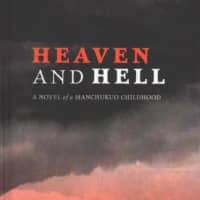This 2005 novel, recently translated into English for the first time, provides the key to Toriko Takarabe's poetry and childhood, both of which were defined by Japan's brief colonial adventure in Manchuria. In 1929, China went to war with Russia to take back the Chinese Eastern Railway and was beaten; Japan stepped between the two in 1932, set up the satellite state of Manchukuo and encouraged its citizens to emigrate to this harsh yet beautiful frontier country. This is the "Heaven" referred to by Masuko, the child narrator of "Heaven and Hell."
Heaven and Hell: A Novel of a Manchukuo Childhood, by Toriko Takarabe, Translated by Phyllis Birnbaum.
144 pages
UNIVERSITY OF HAWAII PRESS, Fiction.
Takarabe's father was a leader in this project and was usually absent, running pioneer camps for recruits. He left his wife and children at the social center of the bustling town of Jiamusi, its hotel, where they lived in relative comfort in a lively world populated by Russians, Chinese, native Manchus and Koreans. Winters were bitterly cold and bandits lurked in the wilderness, but the children's life was surrounded by natural grandeur and human interest.
All this comes to an end with Russian invasion in 1945. Japan's settlers are dispossessed and herded into makeshift camps, where tens of thousands die of starvation and disease. This is Masuko's "Hell." The images of death are powerful and terrifying, for example a pile of frozen ivory-white corpses that persist over a winter, gnawed by dogs. Equally dark is the psychological portrait of the child Masuko descending into a self-centered struggle for survival, scrounging for scraps among corpses. A powerful and important book.



















With your current subscription plan you can comment on stories. However, before writing your first comment, please create a display name in the Profile section of your subscriber account page.